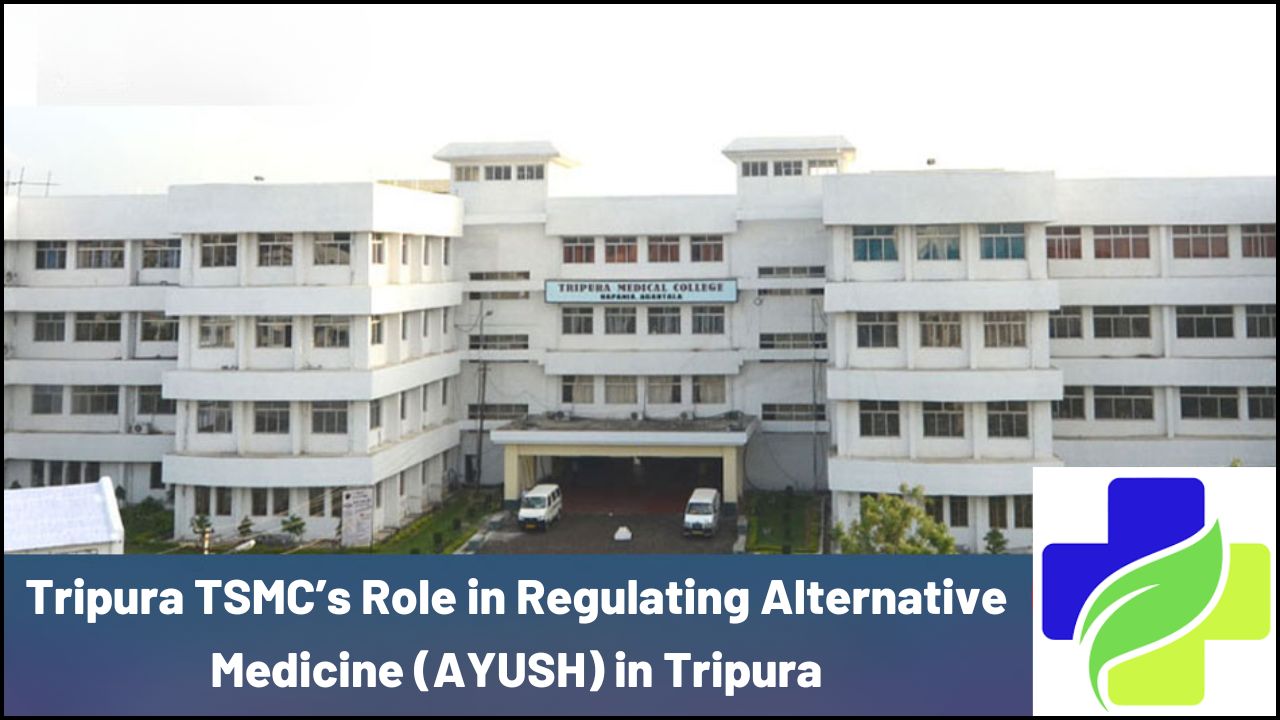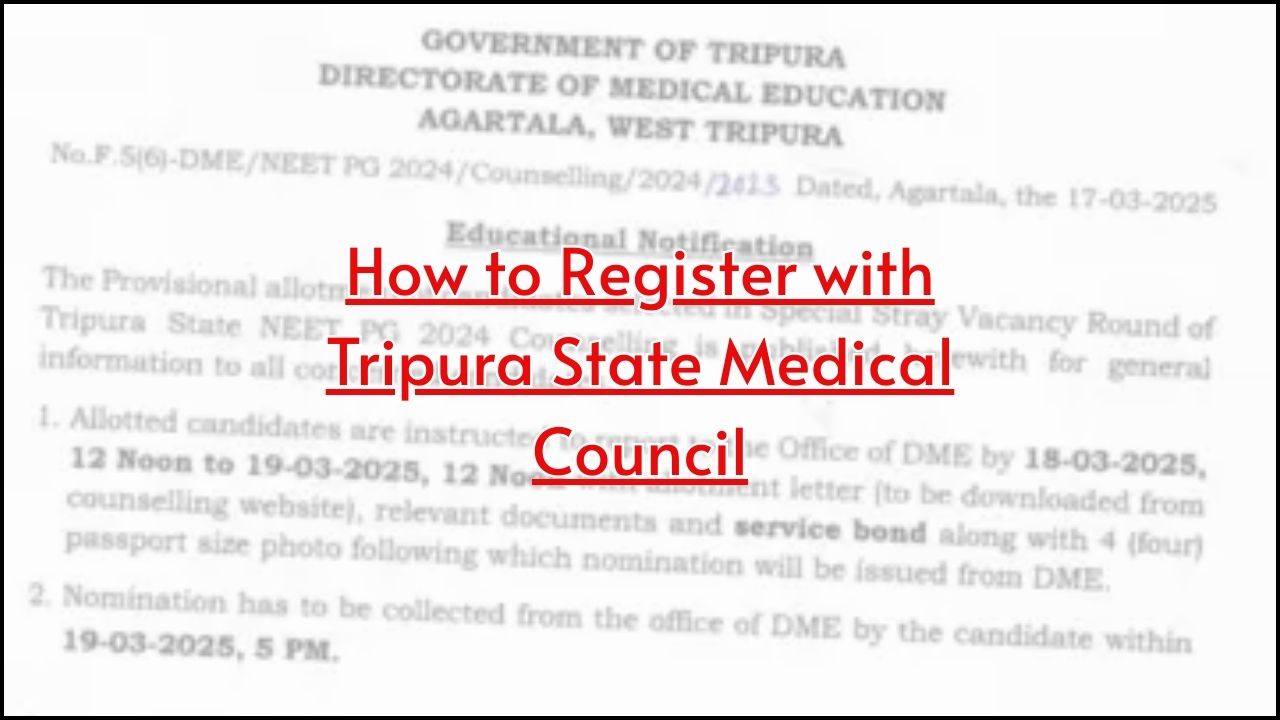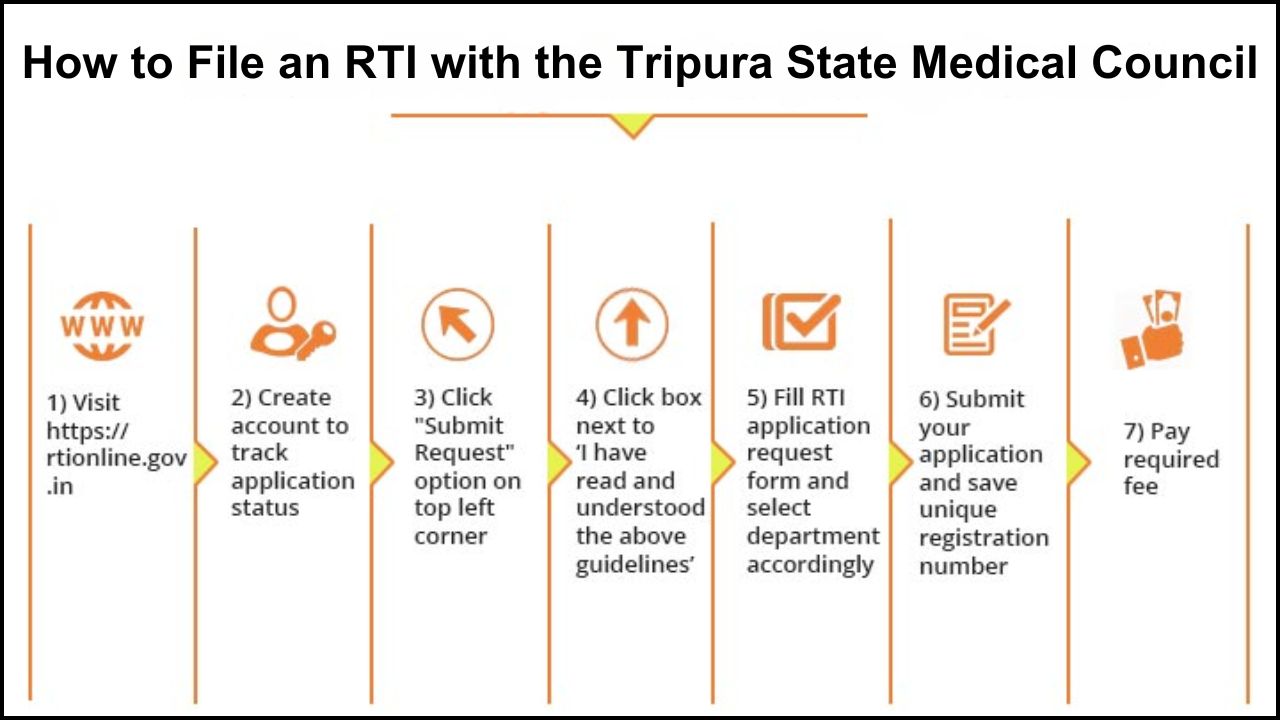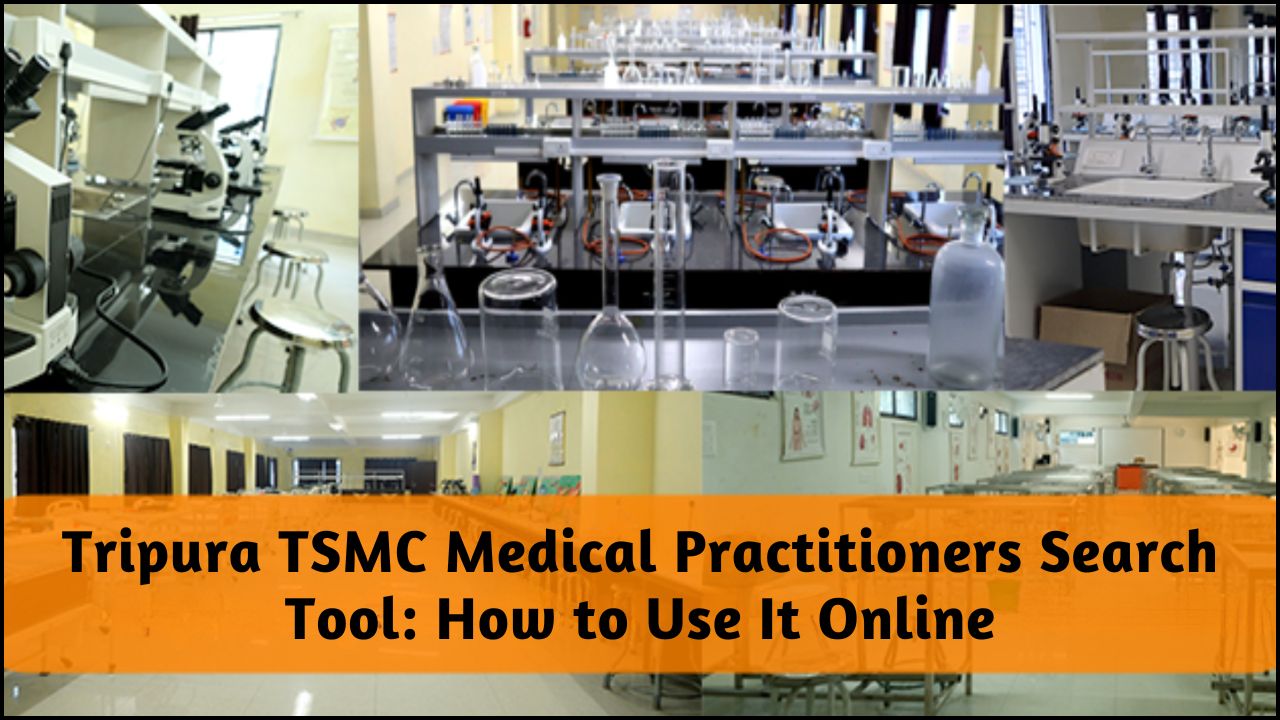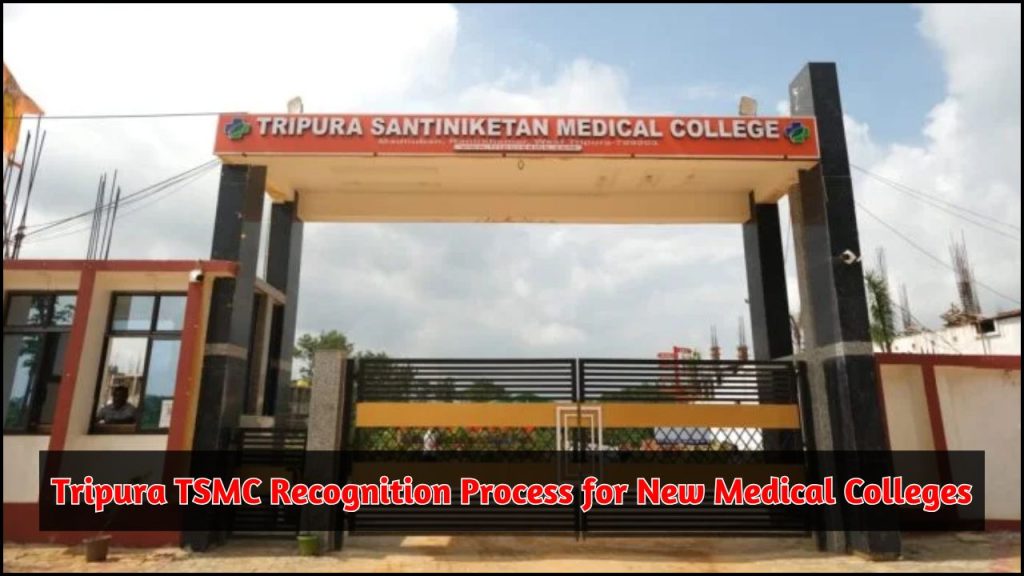
The state of Tripura has been focusing on improving its healthcare and medical education system in recent years. One of the key elements in this development is the recognition process carried out by the Tripura State Medical Council (TSMC). Recognition from TSMC is essential for any new medical college planning to operate within the state. This process ensures that the institution meets the required standards of education, infrastructure, and faculty. Understanding this recognition process helps stakeholders prepare effectively and ensures the availability of quality medical education in Tripura.
Table of Contents
Overview of TSMC
- Full Name: Tripura State Medical Council
- Established Under: Indian Medical Council Act, 1956
- Role: Regulating medical practice and education within Tripura
- Head Office: Agartala, Tripura
- Primary Responsibility: Granting recognition to medical colleges, registration of medical practitioners, and ensuring ethical medical practice
Purpose of Recognition
- Ensure Quality: Recognition guarantees a high standard of medical education.
- Monitor Infrastructure: It checks whether the medical colleges have proper labs, hospitals, and classrooms.
- Verify Faculty: TSMC ensures that the teaching staff are qualified and experienced.
- Legal Requirement: No medical college can legally function in Tripura without TSMC’s approval.
- Public Trust: Recognition increases the trust of students and parents in the institution.
Stages of TSMC Recognition Process
| Stage | Description |
|---|---|
| Application Submission | A New college applies with a detailed proposal and documents. |
| Document Review | TSMC verifies legal documents, infrastructure plans, and faculty profiles. |
| Inspection Visit | A committee from TSMC visits the proposed site for a physical inspection. |
| Compliance Check | TSMC checks whether the college meets the minimum prescribed standards. |
| Feedback and Corrections | If any issue is found, the college is asked to correct and resubmit. |
| Final Review | After corrections, TSMC does a final review before making a decision. |
| Grant of Recognition | Official recognition is given if all requirements are fulfilled. |
Key Requirements for Recognition
| Category | Requirement Details |
|---|---|
| Infrastructure | A College must have lecture halls, dissection halls, labs, a library, and a hospital. |
| Faculty Strength | Qualified and full-time faculty as per MCI/NMC norms must be appointed. |
| Hospital Facility | Functional hospital with a minimum number of beds, departments, and equipment. |
| Library Resources | Adequate medical books, journals, digital access, and reading space. |
| Student Facilities | Hostels, sports areas, clean drinking water, and sanitation facilities. |
| Safety Measures | Fire safety, first aid, emergency exits, and security arrangements must be ensured. |
Important Documents Required
- Project Report of the proposed college
- Affiliation Letter from Tripura University or another recognized body
- Building Completion Certificate from a competent authority
- List of Faculty Members with their qualifications and experience
- Hospital Ownership Proof or agreement with an existing hospital
- Bank Guarantee or financial assurance for operational cost coverage
Role of TSMC Inspection Committee
- Verify Site Location: Ensure that the college is built at the proposed site.
- Inspect Facilities: Check classrooms, labs, library, hostels, and hospital services.
- Meet Faculty: Confirm the presence and qualifications of teaching staff.
- Interact with Management: Understand the administration’s plan for operations and student welfare.
- Submit Report: Prepare a detailed report on findings and submit it to the TSMC board.
Timelines Involved in the Recognition Process
| Activity | Expected Timeframe |
|---|---|
| Application Review | 2 to 4 weeks |
| Inspection Scheduling | Within 30 days after document review |
| Inspection Report Submission | Within 1 week of inspection |
| Decision by TSMC | Within 60 days of report submission |
| Grant of Recognition | Within 3 months (if all is in order) |
Post-Recognition Obligations for Colleges
- Annual Reporting: Submit yearly updates to TSMC on staff, infrastructure, and student intake.
- Re-inspection: Be open to periodic inspections by TSMC to maintain quality.
- Compliance: Follow all guidelines laid out by TSMC and the National Medical Commission.
- Record Maintenance: Keep accurate records of faculty attendance, patient data, and academic schedules.
Penalties for Non-Compliance
| Type of Non-Compliance | Possible Action by TSMC |
|---|---|
| False Information | Rejection or withdrawal of recognition |
| Lack of Infrastructure | Warning, fine, or temporary suspension |
| Unqualified Faculty | Imposition of a fine and a deadline to rectify |
| No Functional Hospital | Cancellation of recognition |
| Ignoring Annual Reporting | Official notice and requirement to explain delays |
Coordination with Other Authorities
- National Medical Commission (NMC): TSMC coordinates with NMC for curriculum and standards.
- Tripura Health Department: Assists in inspection and health-related compliance.
- Tripura University: Ensures academic affiliation and exam schedule coordination.
- Municipal Authorities: Approve building safety, sanitation, and environmental clearance.
Recent Developments in Recognition Process
Digital Application Portal: Colleges can now apply online, reducing paperwork.
- Pre-Assessment Support: Guidance provided by TSMC for applicants to meet standards.
- Stricter Compliance Checks: Regular audits ensure continuous adherence to norms.
- Grievance Cell: A dedicated department resolves issues raised during or after recognition.
Summing Up
Recognition by the Tripura State Medical Council plays a critical role in ensuring the growth of reliable medical colleges in the state. This structured process benefits students, patients, and the healthcare system at large by enforcing quality standards. With clear stages, defined criteria, and regular monitoring, the TSMC aims to support the establishment of trustworthy medical institutions across Tripura.


